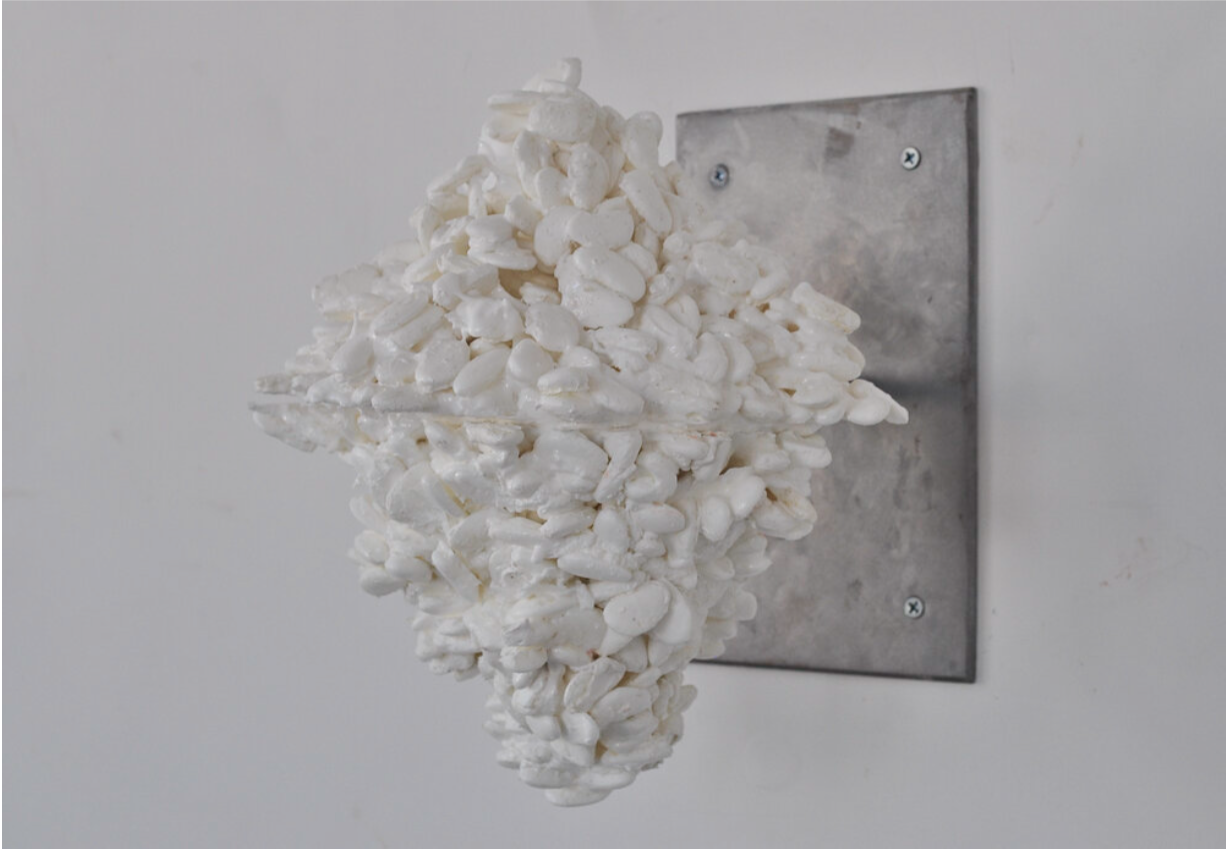MELANIE’S OFFICE
MARK POWER
On view: February 3 - March 11, 2022
“I transmute anonymous, utilitarian objects by re-contextualizing them in terms of material, surface, and quantity. My sculptures of commonplace items explore the ways in which we translate our physical realities through linguistic signifiers and how, in turn, signified objects have the power to transform our mental and emotional realities by challenging this mode of perception. I seek to denaturalize these objects through a visual recourse to the language of mass manufacture, putting them at a remove from the everyday context in which we normally interact with them. My works reference serial production methods through repetition, multiplying casts of the same item.
Like Duchamp’s Fountain, my re-fabricated ‘readymades’ are designed to alter our phenomenological as well as cultural understanding of objects through displacement. By carving distance between our perception of the sculptures and our familiar notions of the objects they signify, I invite us to reassess our relationship with the world around us. My practice breathes new life into objects by ‘breaking’ them. Free from being confined to their function or use value, the objects my sculptures represent go from being objects to being things, from being acted on to being actors in shaping our experiences of emotion, time, and intimacy.” - MP
Mark Power holds an MFA from the School of Visual Arts and a BFA from Virginia Commonwealth University. He also attended Skowhegan School of Painting and Sculpture. In addition to exhibiting his minimalist sculptures and drawings extensively, Power has also held lecturer and visiting artist/critic positions at Princeton University, Pratt, Virginia Commonwealth University, University of Wisconsin, and the Collage for Creative Studies. Inspired by the work of John Cage, issues of perception and representation are paramount in his work.
Power’s current body of work is predicated upon the assumption of implied function and narrative in non-sequential associations of familiarity. His work leverages language to explore how identification can be compromised, challenged, and redirected from the clinical to feelings of emotion, time, and intimacy.


